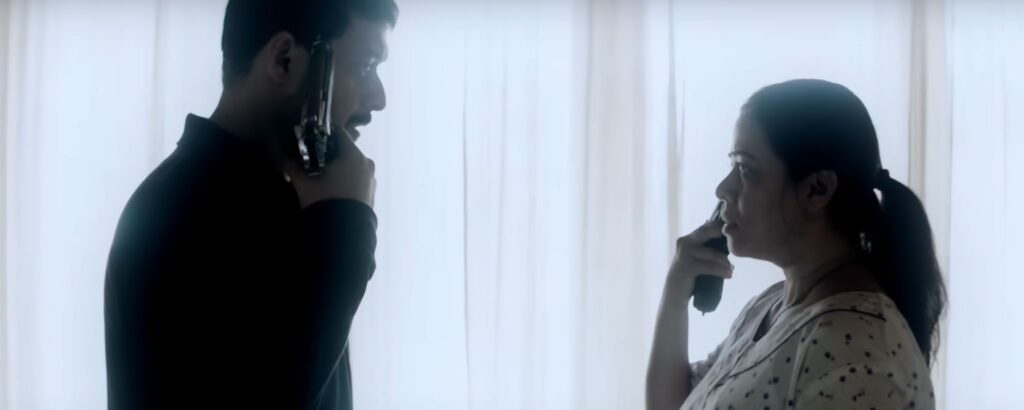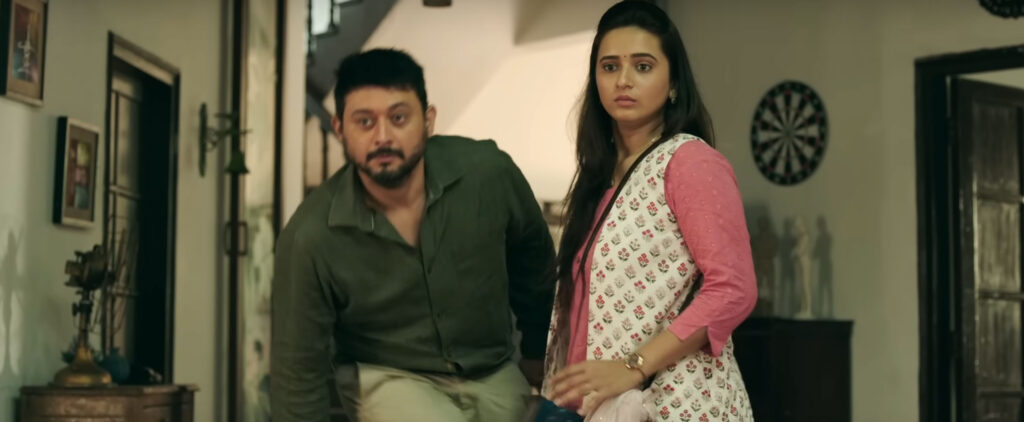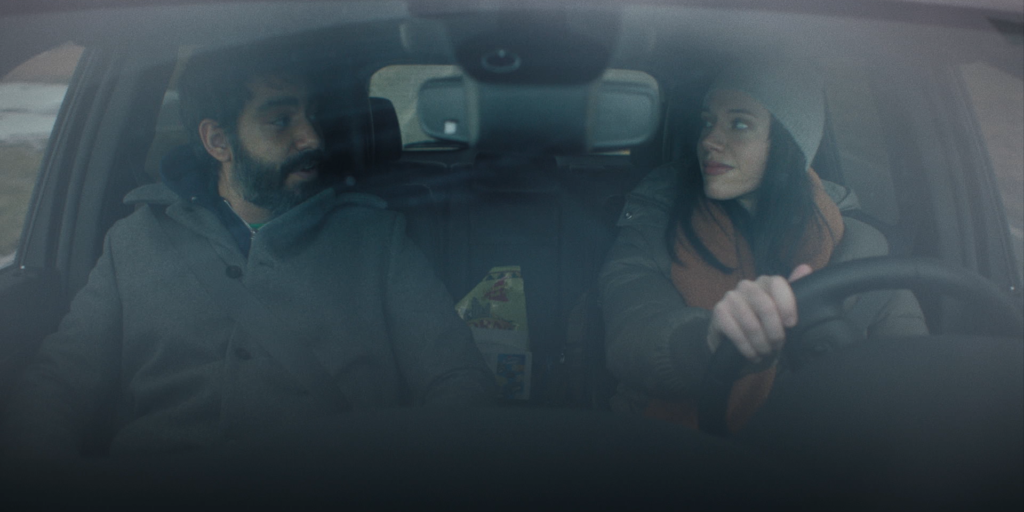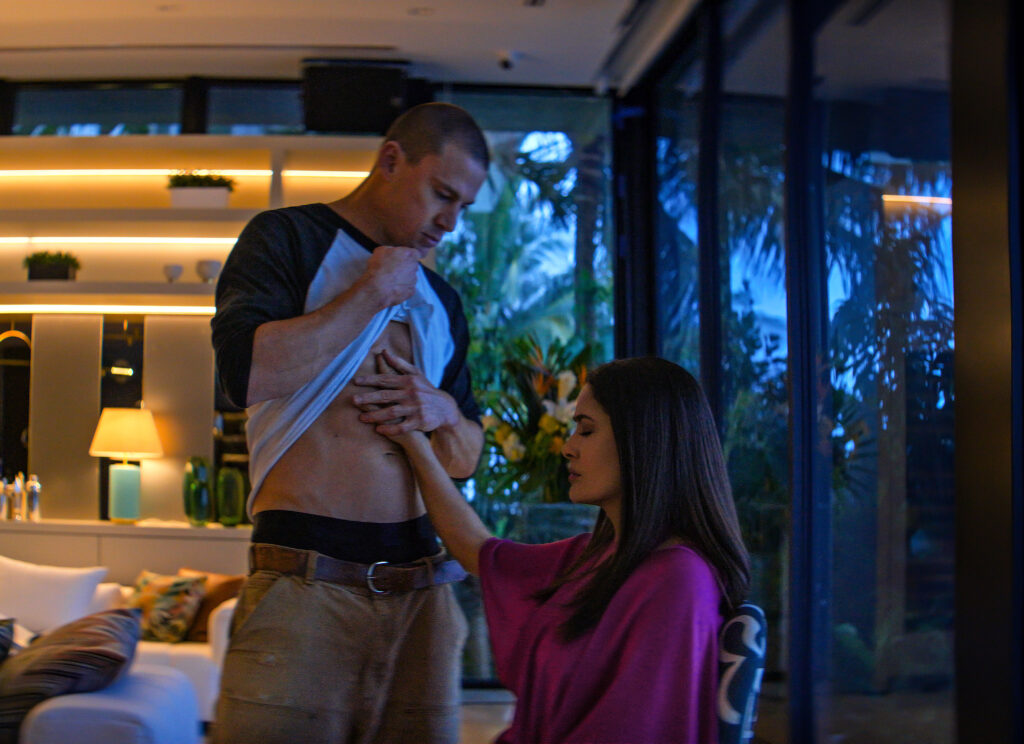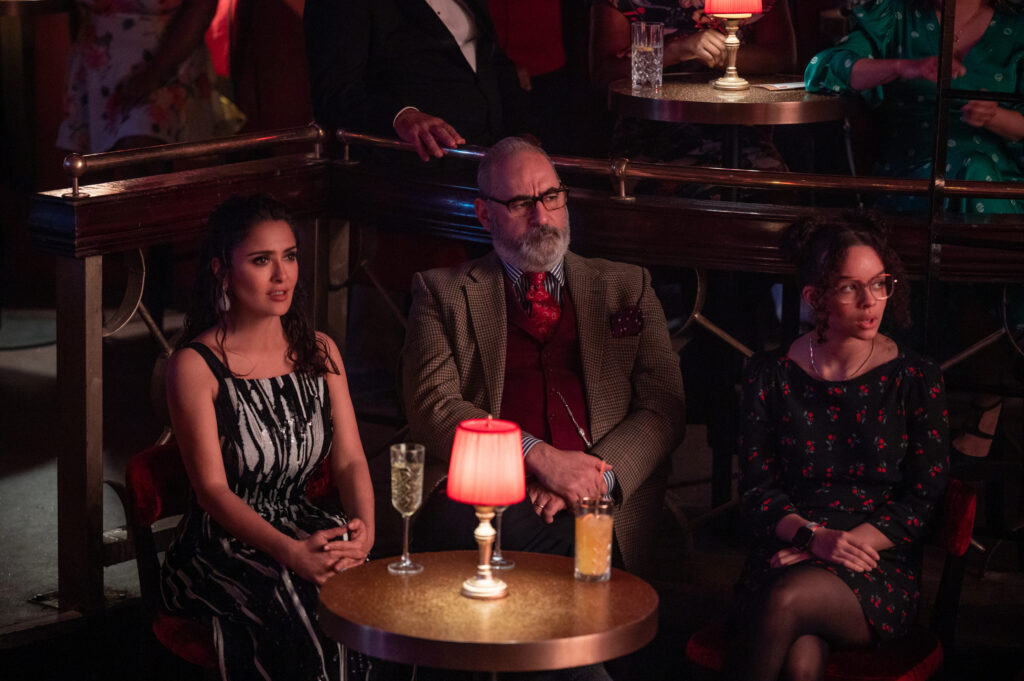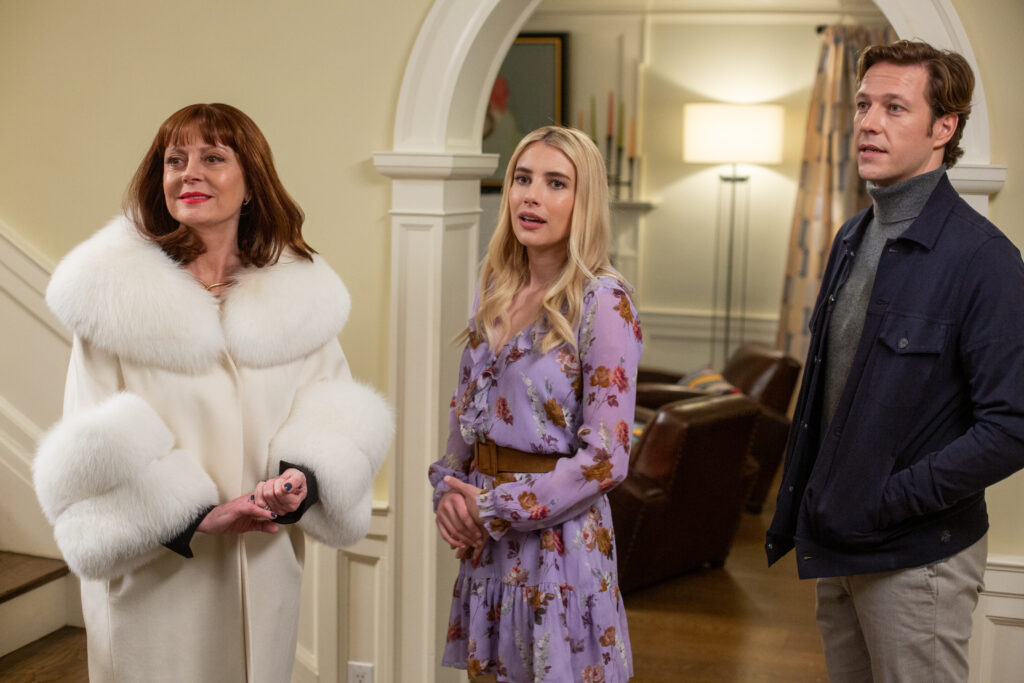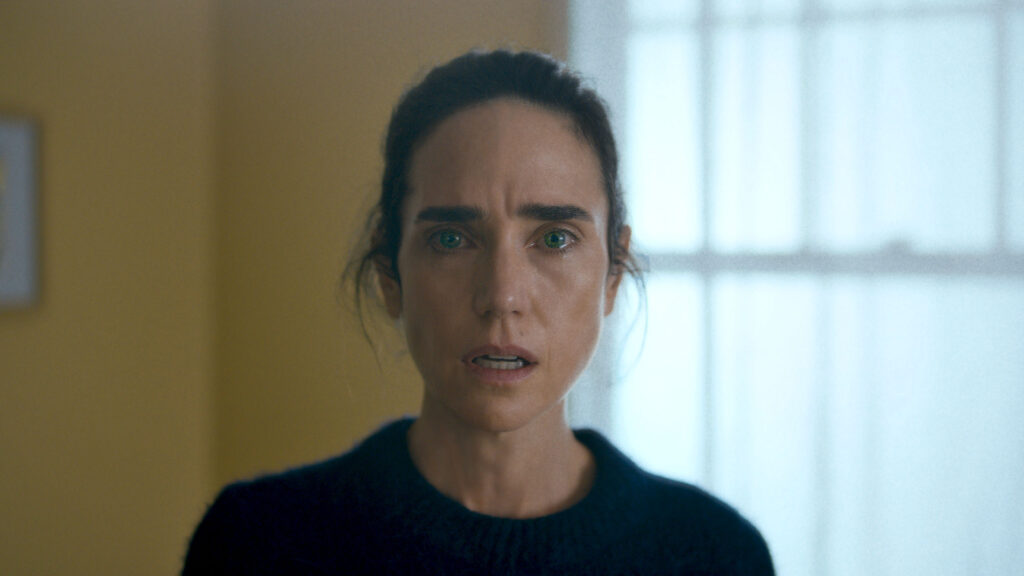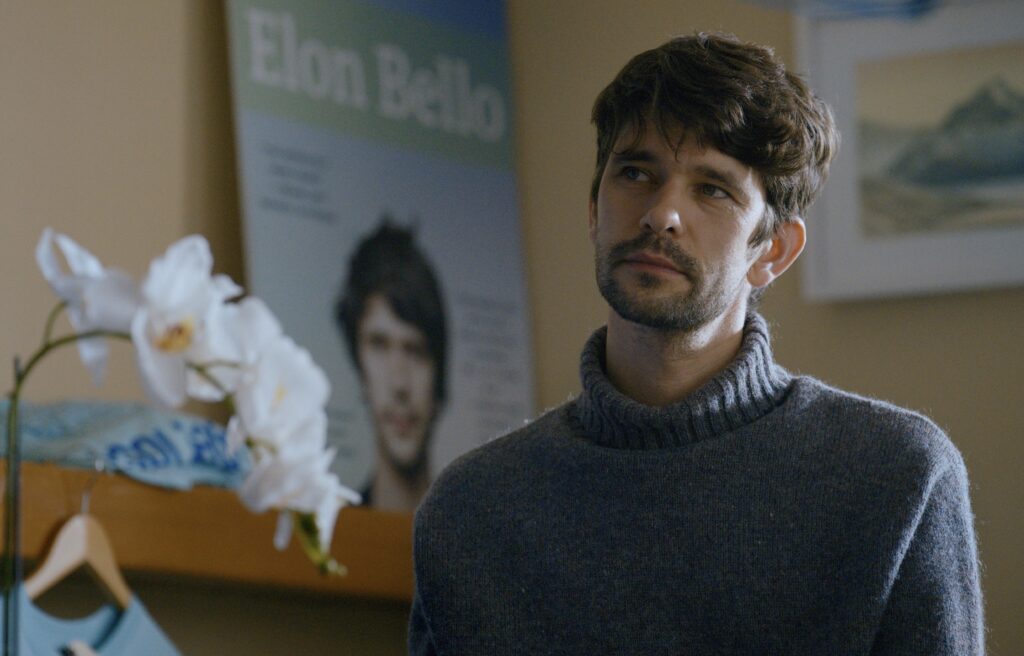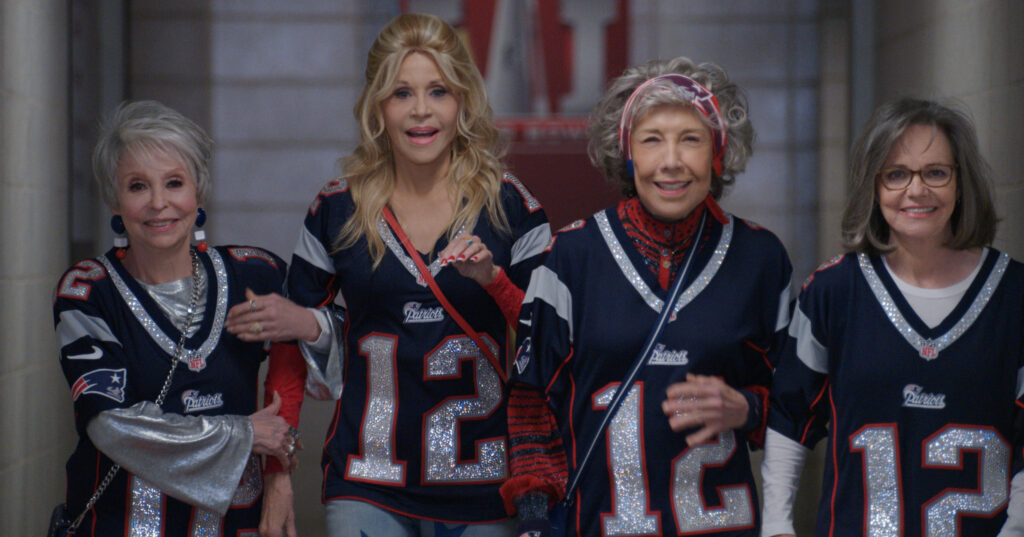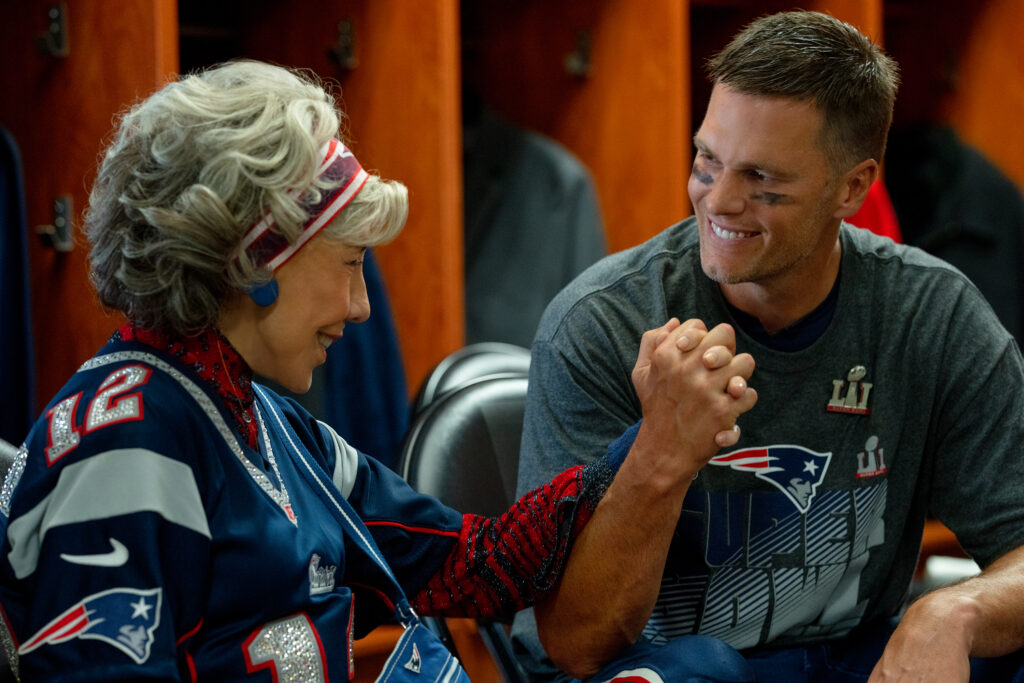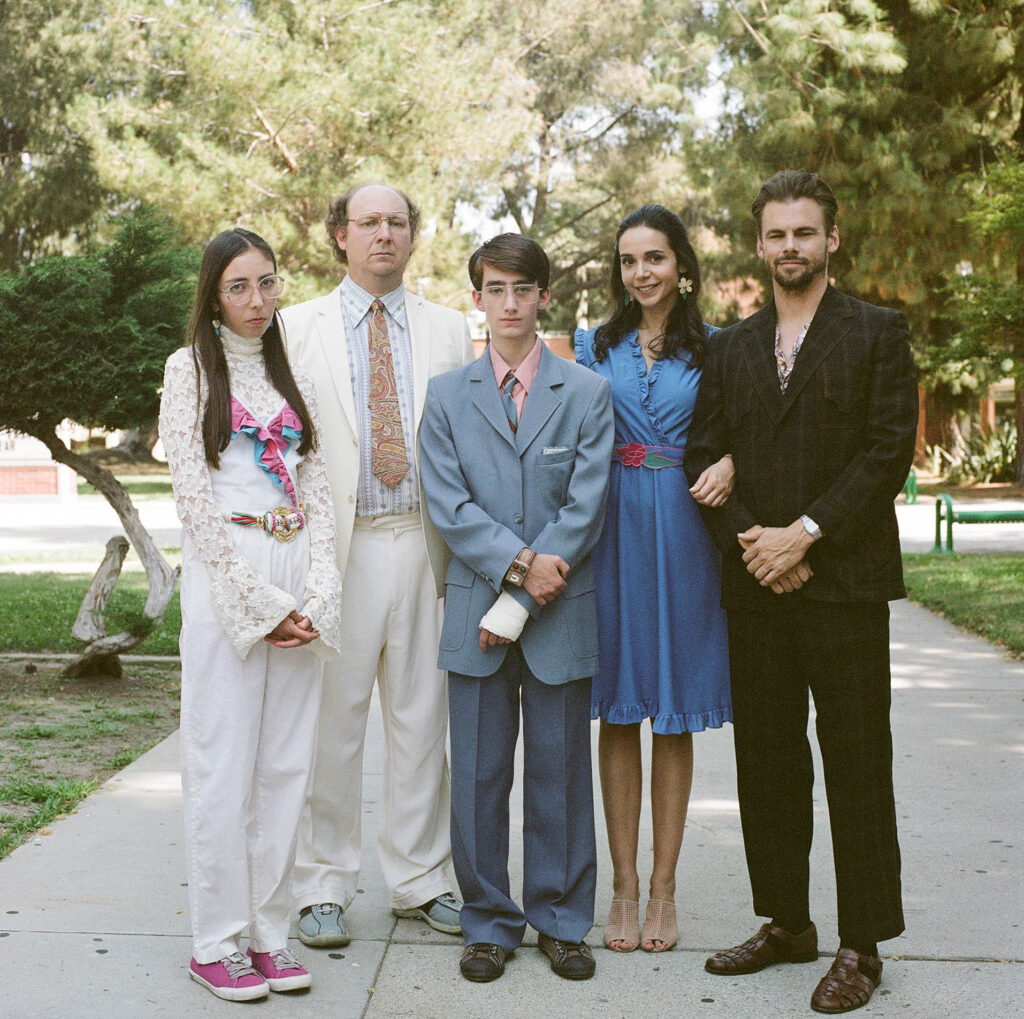February 23, 2023
by Carla Hay

Directed by Elizabeth Banks
Culture Representation: Taking place in 1985, in Georgia (and briefly in Tennessee and in Missouri), the comedic action film “Cocaine Bear” (based loosely on a true story) features a predominantly white cast of characters (with some African Americans and Asians) representing the middle-class, working-class and criminal underground.
Culture Clash: After a drug smuggler dies while parachuting from a plane with large quantities of cocaine, a black bear in a forest area goes on a rampage after ingesting a lot of the cocaine.
Culture Audience: “Cocaine Bear” will appeal primarily to people who are interested in watching dark and violent action comedies that are intentionally absurdist.
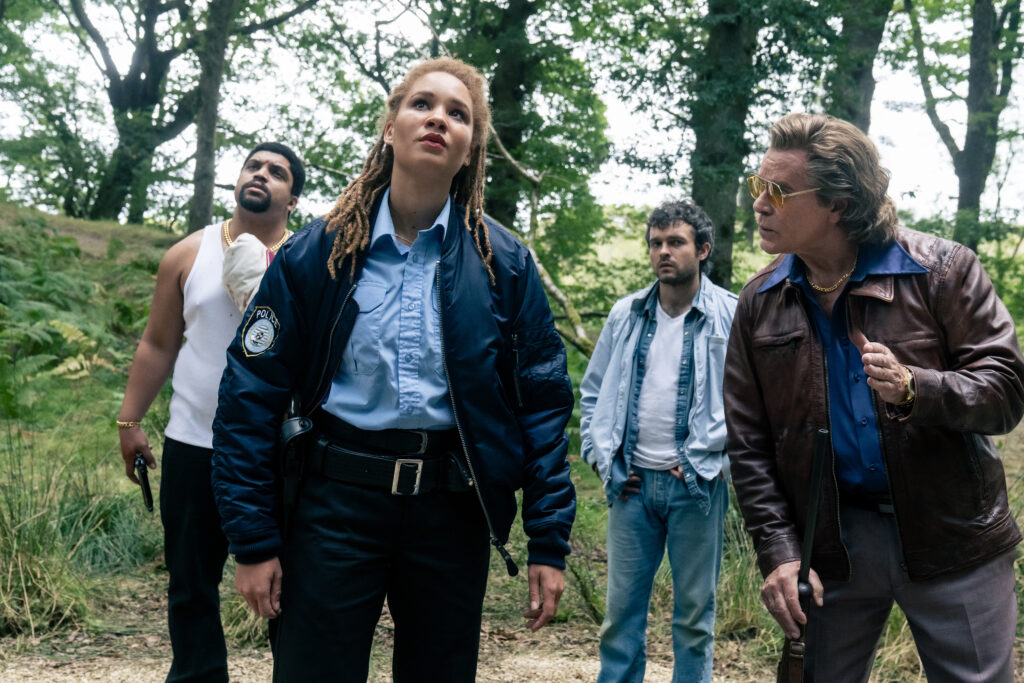
Just like the bear that’s on a cocaine-fueled rampage, the erratic and unpredictable “Cocaine Bear” aims to shake up people’s sensibilities. It’s a wild and uneven ride, where the movie’s surreal comedy works well, more often than not. If you’re easily offended by the thought of children and animals ingesting cocaine, then it’s best to avoid watching “Cocaine Bear.” If you’re open to watching an adult-oriented comedy that doesn’t take itself too seriously, then “Cocaine Bear” might be enjoyable, in a way that’s similar to how people enjoy going on amusement park rides that bring some terror to the entertainment.
Directed by Elizabeth Banks and written by Jimmy Warden, “Cocaine Bear” (which takes place in 1985) is very loosely based on true events. The majority of the movie is fiction. The basic facts that the movie keeps true are that a drug smuggler in his early 40s named Andrew Thornton II (played by Matthew Rhys), who used to be a narcotics police officer in Kentucky, died in Knoxville, Tennessee, after he jumped out of a small private plane with 70 to 75 pounds (or 31 to 34 kilograms) of cocaine, and his parachute malfunctioned. (It’s the opening scene of “Cocaine Bear.”)
Before jumping out of the plane, he had dumped duffel bags filled with several bricks of cocaine in the Chattahoochee–Oconee National Forest in Georgia. The most common theory is that Thornton had brought too much cocaine on the plane and unloaded some of his stash in the forest, with a plan to go back later and get the cocaine. However, in real life, a black bear got to the cocaine first and was found dead of an overdose. In the movie, the bear doesn’t die of an overdose but instead goes on a killing spree where humans are the main targets. All of the characters in “Cocaine Bear” except Thornton are fabricated for the movie. The “cocaine” seen in the movie is actually sugar or artificial sweetener.
An introduction statement in the movie explains that black bears usually don’t attack people unless it’s for reasons related to food, self-defense or invasion of a bear’s territory. “Cocaine Bear” doesn’t waste much time before the mayhem starts. At Chattahoochee–Oconee National Forest, two German-speaking tourists named Elsa (played by Hannah Hoekstra) and Olaf (played by Kristofer Hivju), who also goes by the name Kristoffer, are hiking and taking photos. They see a bear acting strangely, such as dry-humping a tree.
Elsa and Olaf/Kristoffer are intrigued and want to take photos of this bear, although he is more hesitant because he heard that black bears can be deadly. According to the “Cocaine Bear” production notes, the movie’s coke-fueled bear (which the cast and crew nicknamed Cokey) is actually a combination of visual effects and motion caption imagery with stunt performer Allan Henry. In the movie, tourists Elsa and Olaf/Kristoffer are the first people who have a very unlucky encounter with the bear. Only one of these tourists makes it out alive.
The first 20 minutes of “Cocaine Bear” jump around a lot from scene to scene, by quickly showing the other characters in the movie who will encounter the bear. In St. Louis, Missouri, an international drug smuggler named Syd (played by Ray Liotta) was responsible for getting the cocaine shipment that Thornton was supposed to deliver. In real life, the deceased Thornton was found with cocaine that was worth $15 million at the time. In the movie, it’s mentioned that the missing cocaine in the forest is worth about $7 million.
Syd comically has his headquartes at Four Pines Mall, where he likes to hang out with his small crew at O’Shaughnessy’s Burger Time restaurant. Syd’s two main henchmen are his son Eddie (played by Alden Ehrenreich) and Eddie’s best friend Daveed (played by O’Shea Jackson Jr.), who is the more risk-taking and tougher of the two pals. Thornton’s death has made the national news. Syd knows that he’ll be held responsible for any of the cocaine that’s still missing—and he’ll do whatever it takes to find this stash. Somehow, Syd knows that Thornton had dumped the rest of the stash in the Chattahoochee–Oconee National Forest.
Eddie is first seen literally crying over his drinks in a dive bar in St. Louis, because he’s grieving over the death of a friend/colleague named John. Eddie is babbling about how the person conducting the funeral service mistakenly called John the name Joan. It’s a rambling scene that didn’t really need to be in the movie, especially since Ehrenreich over-acts in this scene. Daveed comforts Eddie, but they won’t have much time to drown any more of their sorrows in a St. Louis bar, because Syd has ordered Eddie and Daveed to go to Georgia to find the missing cocaine in the Chattahoochee–Oconee National Forest.
Meanwhile, the Chattahoochee–Oconee National Forest is under the jurisdiction of a local police detective named Bob Springs (played by Isiah Whitlock Jr.), who knows that the forest is being used as a drug-smuggling hiding place for Syd and Syd’s “crime family.” Bob is determined to find a way to bust Syd and Syd’s cronies. Bob correctly assumes that there might be some of some of Thornton’s missing cocaine in the forest, and people in Syd’s crew will come looking for this drug stash.
“Cocaine Bear” gets a little sidetracked with some comedic details that don’t become very clear until later in the movie. For example, there are several minutes of screen time showing that Bob, who wants to adopt a dog, had a Maltese delivered to him instead of the Labrador Retriever that Bob originally wanted. Bob asks his police officer colleague Reba (played by Ayoola Smart) to temporarily look after the Maltese, which is a dog with long white fur that he thinks looks too high-maintenance and “fancy” for Bob. Viewers have to watch an epilogue scene in “Cocaine Bear” to see the reason why the movie keeps showing this Maltese.
Also in the Chattahoochee–Oconee National Forest area is a hospital nurse named Sari (played by Keri Russell), who is financially struggling and has to work extra shifts to help make ends meet. Sari is the mother of 13-year-old Dee Dee (played by Brooklynn Prince), who has dreams of becoming a painter artist. Dee Dee’s best friend is a slightly younger child named Henry (played by Christian Convery), who has a crush on Dee Dee and spends a lot of time trying to impress her.
Dee Dee and Henry are both playful and a little rebellious. They skip school one day so that Dee Dee can go to a place in the forest’s Blood Mountain, where there is a nearby waterfall that Dee Dee wants to paint so that she can use this painting to get accepted into a prestigious art camp. A big part of the movie is about Sari trying to find “missing” Dee Dee and Henry in the forest. Because Dee Dee and Henry have gone missing on the same day that the cocaine bear goes on a rampage, you can easily predict what might happen with these two kids.
The Chattahoochee–Oconee National Forest has a visitor center, where a no-nonsense park ranger named Liz Winters (played by Margo Martindale) works as a manager of sorts. (She’s the only employee of the visitor center who’s seen in the movie.) Liz tries to come across as being tough as nails, but she’s got a soft spot for an animal-rights activist named Peter (played by Jesse Tyler Ferguson, in a very fake-looking wig), who calls himself a “life inspection representative.” Peter is a regular visitor to make sure that no animals are being harmed in the forest.
Peter might be aware that Liz has a crush on him. The movie drops in some adult-oriented double entendre jokes. For example, Peter comments to bachelorette Liz about one of the taxidermy animals on display in the visitor center: “You’ve got a dusty beaver here, rancher.” Liz smirks and replies, “I’m working on it.” Later in the movie, two paramedics named Beth (played by Kahyun Kim) and Tom (played by Scott Seiss) arrive by ambulance to the visitor center in one of the movie’s most memorable scenes.
A group of troublemakers in their late teens and early 20s, who call themselves the Duchamps, have been robbing and assaulting people in the forest area. Only three of these gang members are shown in “Cocaine Bear,” and they only have nicknames in the movie. Kid (played by Aaron Holliday), also known as Stache, is the youngest and most likely to talk himself out of tough situations with an opponent. Ponytail (played by Leo Hanna) is the biggest bully in the group. Vest (played by J.B. Moore) is the most likely to get scared when things go wrong.
All of these characters encounter each other in one way or another during “Cocaine Bear.” There’s a lot of gruesome violence that looks straight out of a horror movie. However, “Cocaine Bear” is never really a horror movie because it stays consistently true to its intention of being an action comedy. The bear does some unrealistic stunts and has some human-like facial expressions that seem to be the filmmakers’ way of winking at the audience to show that “Cocaine Bear” is an absurdist fictional film.
In one of his last movie roles, Liotta (who died in his sleep in 2022, at the age of 67) seems to be having fun as the “Cocaine Bear” Syd character, which is a spoof of all the callous criminals that Liotta portrayed in his long acting career. Martindale, Ferguson and Jackson also have great comedic timing and understood that “Cocaine Bear” is meant to have a dark-but-wacky satirical tone in this story about humans versus a wild animal. The rest of the cast members are serviceable in their roles. The bear, without question, is the star of the show.
For a movie about a cocaine-fueled killer bear on the loose, “Cocaine Bear” occasionally disappoints when the movie becomes less suspenseful about when the bear is going to attack next. The adrenaline-packed momentum drags when the movie gets sidetracked with the some of the shenanigan-like conflicts between people who know about the bear.
“Cocaine Bear” also requires a huge suspension of disbelief that the local fire department (which is usually in charge of handling wild animals) wasn’t called as soon as it was known that a wild bear was killing people. Police detective Bob is the main government official on the scene for most of the movie. And there is no mention of the area being evacuated for safety after it’s known that a killer bear is on the loose, and more people get killed by the bear.
However, no one should be going to see “Cocaine Bear” for realism. Banks’ direction is solid but sometimes a little too busy and unfocused. The movie is hit-and-miss when it comes to the storytelling part of the narrative. And some of the main characters (such as Eddie and Sari) are not very interesting. But “Cocaine Bear” delivers the goods when it comes to viewer anticipation to see what this unhinged bear will do next. The movie is destined to become a cult classic for viewers who like this type of entertainment.
Universal Pictures will release “Cocaine Bear” in U.S. cinemas on February 24, 2023.



